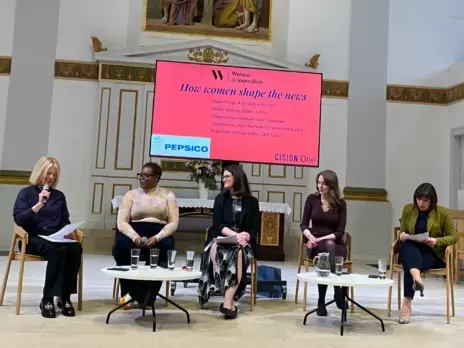A news agency has expressed unease over how Google News operates and criticised the search engine’s reluctance to discuss the ‘closely guarded’criteria it uses to judge media organisations.
Michael Leidig, the founder and owner of Vienna-based Central European News, believes the formula it uses to rank entries on its news page ‘doesn’t work”, or at not least not ‘under the terms that anyone who is a professional in the news business would understand… And nobody at Google seems prepared to comment on why”.
CEN was founded in 1993 and generates around 50 stories news items a day, along with pictures and video content.
While it sends copy to newsdesks across the world, for the last five years CEN has also published all its material across a network of eight online newspapers.
In a post on one of CEN’s news websites, Austrian Times, today Leidig notes that ‘how Google chooses which items to list is a closely guarded secret”, adding:
And that is why we know that Google News doesn’t work – at least according to the journalistic standards that any newspaper editor would apply… In order to be noticed, as any freelancer or agency knows, you need to file before anybody else – you also need to be correct and get the facts right – and it needs to be well written.
In short – you need to do better job than any of your rivals. If you could fulfil all three criteria then you would be home and dry. Anything sent would sail into the news agenda and you would be paid. That doesn’t happen with Google news.
In November, when it first began looking into the issue, CEN said it couldn’t find a single story from any of its websites on Google news despite the fact that they were all ‘exclusive stories written by professional reporters who are on the ground”.
CEN spent a year trying to find out why this was happening and hired consultants to look at the technical specifications of the site, then resubmitted the site plan to Google ‘in the hope that this might solve the problem.
They only appeared on Google news when they turned up online hours later in a larger site that had republished the story. Some of the papers that republished had taken the material through a formal syndication arrangement, but others had simply taken it and republished it as their own.
He contacted Google in November with ‘more than a dozen examples of stories that had not appeared at all when first published here [Austrian Times] – but only appeared when republished”.
CEN is still awaiting a formal response from Google, but Leidig claims that ‘after months of not appearing at all on Google news, the Austrian Times is back again and indeed did appear again in the listings a short while after the questions were filed.
‘That in turn has seen a significant increase in readership statistics but it doesn’t answer the question of why it disappeared in the first place,’he said.
He has contacted editors at other news outlets that have experienced similar problems but found they were unwilling to go on the record because ‘nobody wants to rock the boat”.
The managing director of SEO Specialists, Rob Andrews, told CEN:
No one has the Google algorithms in their pocket. We all keep our ear to the ground, share information and do our own tests to find out as much as possible. But having said that Google’s news search will probably be based on its natural search, but with a time factor thrown in.
He also told Leidig that while it was ‘rich with lots of brilliant content’there was more that could be done’to make the site more accessible”.
Austria Times editor David Rogers added:
Today we had a story that has attracted 20,000 readers – but look for it on Google News and it’s not there – you only find it – word for word the same – on a rival paper that published after we did. That’s not news judgement that I can relate to.
There are no doubt a lot of people that are only interested in trying to manipulate what search engines do in order to boost their statistics and therefore it’s understandable that Google and probably others will want to keep the details of how they rate their news sources a secret.
But our experience raises the possibility that that need for secrecy is leading to readers getting a diet of news that is both recycled and old – not what the internet was about – and that the genuine content providers that are originating the material are going to eventually fade away.
Email pged@pressgazette.co.uk to point out mistakes, provide story tips or send in a letter for publication on our "Letters Page" blog






